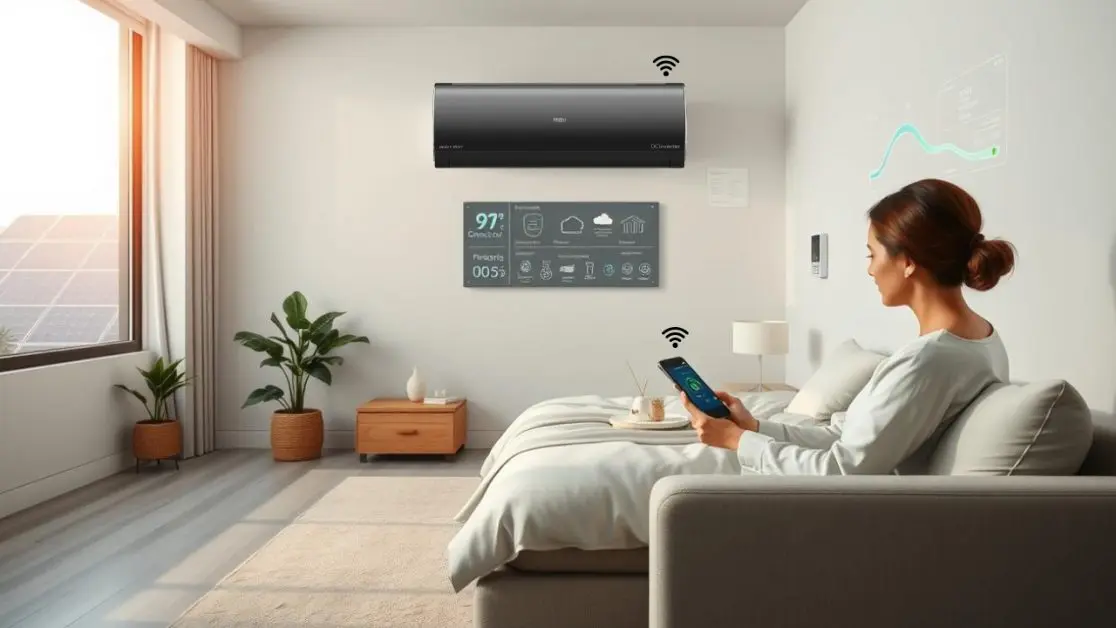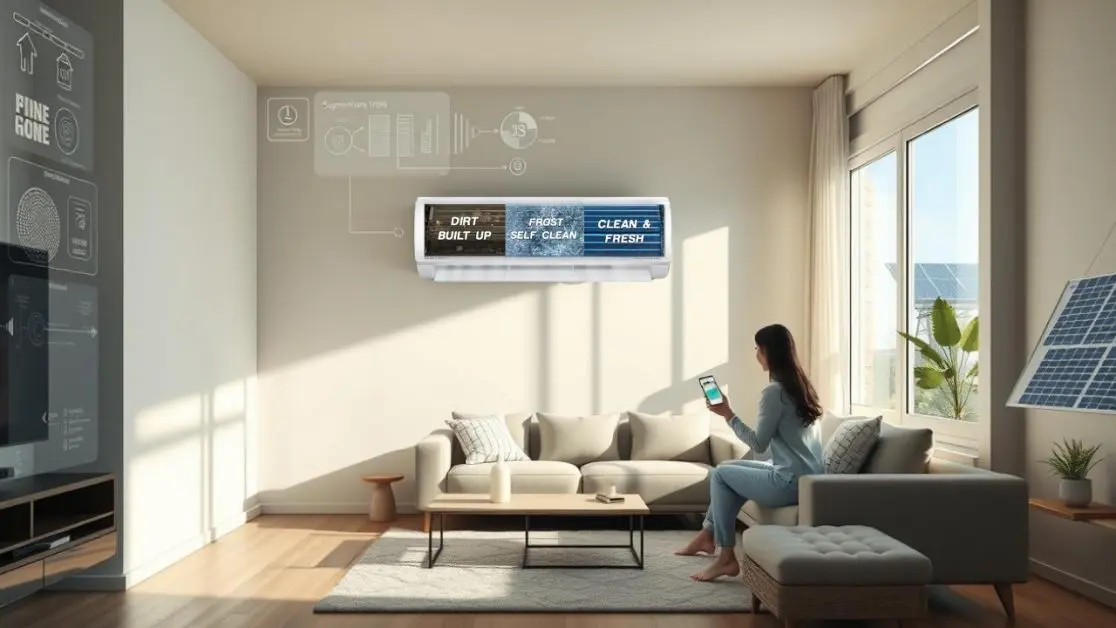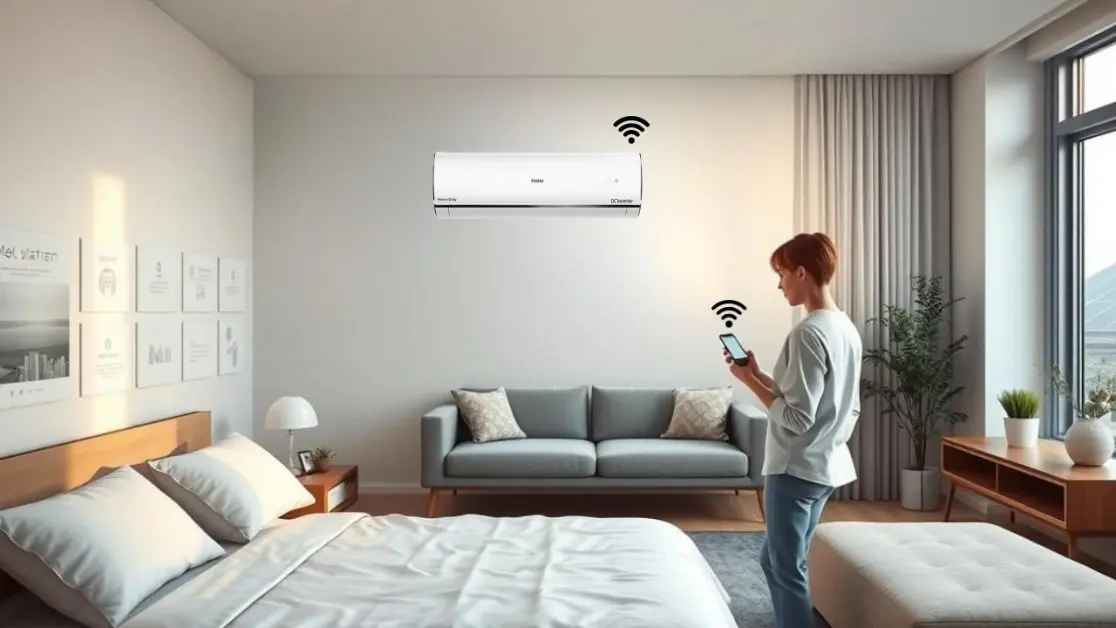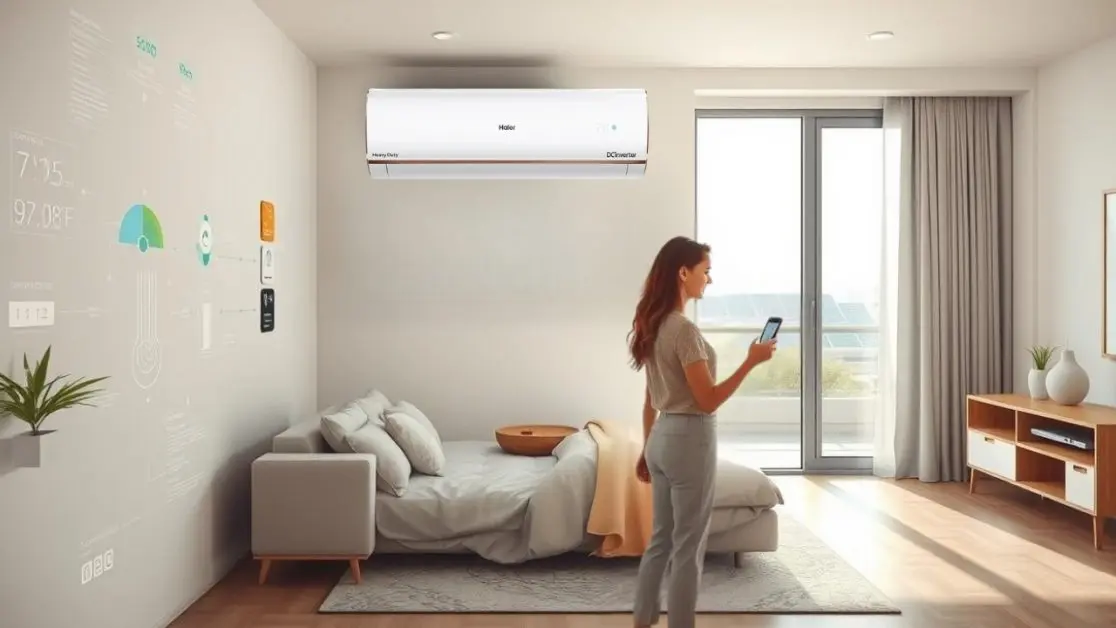As global temperatures continue to rise, air conditioning is no longer just a luxury, it has become a necessity in big cities in India. This increasing reliance on cooling systems places immense pressure on energy grids, often resulting in power outages, inefficiencies, and rising electricity costs.
Traditional grids, designed for stable energy distribution, struggle to cope with fluctuating demand, especially during peak hours.
Just like how the human body relies on the nervous system, energy distribution networks known as smart grids act as allocators of energy, reacting to fluctuations in demand. As temperatures around the globe increase, people are forced to rely more on air conditioning (AC), placing increased demand on smart grids.
Artificial Intelligence (AI) is transforming energy management by enhancing the efficiency of smart grids. Through AI integration, energy distribution becomes more automated, adaptive, and predictive, ensuring a seamless balance between supply and demand.
AI-powered air conditioners analyze user behavior, real-time weather conditions, and energy consumption patterns to optimize cooling while reducing overall power usage. This advancement not only benefits consumers but also strengthens grid reliability and promotes sustainable energy solutions.
In this article, we will explore how AI-driven smart grids are reshaping AC energy consumption, enhancing efficiency, and paving the way for a more sustainable future.
What is a Smart Grid?

A smart grid is a modern version of an electrical network. It combines traditionally employed energy mechanisms with functionalities of digitization, enhanced communication, and AI-powered mechanization. Unlike conventional grids, smart grids do not rely on static breakdown patterns and do not follow fixed energy distribution patterns. Instead, they are capable of assessing, analyzing, and monitoring electricity flow in real-time.
With smart grids and AI, power distribution becomes less complex at higher demand levels for AC consumption, meaning energy can be distributed efficiently while minimizing unnecessary pressure on the grid.
How AI Air Conditioners are Transforming Smart Cooling Technology
AI-powered air conditioners have become commonplace in recent years due to their ability to reduce appliance energy consumption, control energy use in real-time, and integrate seamlessly with smart grids. These cutting-edge cooling technologies utilize machine learning, real-time data analytics, and IoT-enabled air conditioners to optimize energy consumption and deliver personalized comfort.
1. Energy Efficiency Through Smart Adaptive Cooling
AI air conditioners make real-time modifications by learning user habits, room usage, and weather patterns:
- Auto temperature modulation: AI prevents overcooling by automatically controlling the activity level in the room.
- Geo-fencing & occupancy detection: AI-activated sensors determine the presence of users within a specified perimeter and power AC units accordingly.
- Predictive energy saving: AI studies past usage and recommends maximum comfort with minimal energy consumption through optimized cooling schedules.
2. Seamless Integration With Smart Grids
With India being a key market player, Haier air conditioners offer smarter management and optimal electricity consumption through higher-level integration with smart grids.
- Two-way energy communication: AI ACs reduce cooling levels during peak power usage hours and receive instructions from the smart grid to prevent excess energy consumption.
- Demand shifting and response: When electricity demand is at its lowest, AI shifts cooling cycles to off-peak hours, reducing the burden on the grid.
- Smart auto-power modes: Intelligent AC units recognize elevated power costs and automatically switch to low-power saving mode.
3. Self-Learning & Maintenance for Longevity

AI not only saves energy consumption but also enhances reliability by anticipating system failures, ultimately extending the lifespan of air conditioners.
- Predictive maintenance: AI can detect potential failures in components, helping to prevent breakdowns and reduce repair expenses.
- Automated self-cleaning: Some AI-driven ACs determine self-cleaning cycles through machine learning to maintain peak efficiency.
4. AI Voice Control and Application Management
With increased control through voice commands and mobile applications, newer AI-enabled ACs offer effortless management and enhanced user interaction:
- Voice commands & smart assistants: AI ACs can be controlled using voice commands and integrated with Amazon Alexa, Google Assistant, and smartphone apps for remote operation.
- Energy monitoring: Users can track energy consumption in real-time and review reports to make informed energy-saving decisions.
Improving Smart Grids with AI-Driven AC Power Optimization

1. AI-Powered Automated Demand Estimation and Real-Time Load Shifting
In some regions, air conditioning accounts for approximately 40% of peak power consumption. AI-driven predictive analytics allow smart grids to estimate demand spikes and shift power resources dynamically:
- AI models assess weather trends, historical AC consumption, and grid usage.
- Expected peak periods are predicted, and power generation is adjusted in advance.
- Load balancing ensures no region experiences excessive energy demand, reducing outages.
By smoothing the timeline of energy consumption, AI prevents overconsumption and grid strain, improving efficiency and reducing costs.
2. Smart AC Optimization Using AI-Integrated Sensors
Smart AC units enhances connectivity with smart grids through IIoT sensors that:
- Customize cooling solutions based on room occupancy and weather conditions.
- Dynamically regulate power consumption externally.
- Activate low-power modes during high electricity pricing or grid stress periods.
This continuous communication between smart ACs and the grid ensures cooling needs are met efficiently without overburdening the system.
3. AI-Powered Demand Response Mechanisms
Electricity pricing varies by geographic region, and AI-driven Demand Response (DR) programs allow AC units to adjust energy consumption based on real-time pricing signals.
For instance:
- During peak hours, AI can automatically scale back AC power usage while maintaining cooling effectiveness.
- AC units can operate at full capacity when energy costs are lower.
This real-time energy pricing optimization helps balance grid strain while lowering electricity costs for consumers.
4. Automated Energy Redistribution and Storage
AI enhances renewable energy storage and redistribution for AC-powered systems:
- Battery storage integration: AI ensures solar energy collected during the day is stored for nighttime AC use.
- Home-grid association: Smart grids prioritize stored energy for air conditioning, reducing reliance on expensive peak-hour electricity.
With AI-enabled storage mechanisms, ACs can operate effectively without major grid dependence during peak times.
Benefits of AI-Powered Smart Grids for AC Users

- Reduced Energy Costs – AI-driven energy optimization leads to lower electricity bills.
- Enhanced Functionality – AI ensures efficient cooling while maintaining comfort.
- Improved Grid Stability – AI minimizes the risk of blackouts during heat waves by redistributing energy efficiently.
- Sustainable Cooling – Reduced energy consumption lowers carbon footprints, promoting eco-friendly cooling solutions.
- Personalized Comfort – AI adapts to user preferences, maintaining ideal temperature settings while conserving energy.
The Future of AI and Smart Grids in AC Energy Management
AI and smart grids are changing the way we use air conditioning, making it more intelligent, efficient, and cost-effective. With advances in machine learning, real-time data analysis, and automation, air conditioners can now adjust cooling based on real-time demand, reducing energy waste and lowering costs.
AI is paving the way for a future where air conditioning is not just about staying cool but also about using energy responsibly. The shift towards intelligent automation and smart system integration will ensure a more sustainable and efficient way to manage cooling worldwide.
Looking for smart home appliances? Visit Haier India’s website now! Discover cutting-edge AI-powered air conditioners and energy-efficient solutions tailored for modern homes.
Upgrade your lifestyle with innovative, sustainable, and intelligent home appliances from Haier India today!

